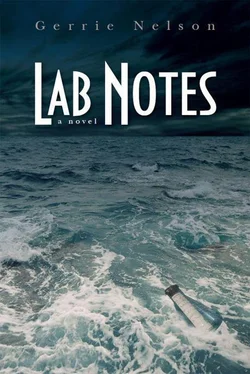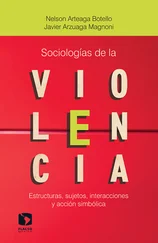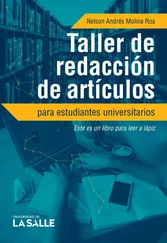Vincent took a moment to blink his vision back into focus, then checked the radar. He couldn’t believe his eyes. A quick look through a starboard porthole confirmed what he saw on the screen. “SHIT!!!”
A large power boat, by now just a mile or so off his starboard beam, pushed a mountain of water in front of it as it sped toward Woodwind —the two boats were on a collision course. He had to change direction quickly.
Vincent leaped to the stairs and scrambled topside. The big boat was almost upon him. He lunged for the autopilot control. But his tether clip got hung up, jerking him backwards off his feet. He smashed his head against the starboard seat and crashed to the cockpit floor.
Vincent lay motionless. Through his shadowy awareness, he heard his brain throbbing to the rhythmic vibrations of a large engine. “ Alas! (thought I, and my heart beat loud)/ How fast she nears and nears! ”
Then came a jarring impact, followed by a gnashing, grinding, splintering upheaval. Then silence and sleep… delicious sleep … Diane.
Returning from her early morning jog along BRI’s trails, Diane found Maxine waiting for her outside the locker room door.
“Do you have your cell phone with you?” she asked Diane breathlessly.
“It’s in my locker. Why?”
Maxine pushed open the door and stepped back. “You need to get it. The Coast Guard will be calling you.”
“Why would the Coast Guard…?” She didn’t need to finish the question; there could only be one answer. Fighting off a sense of alarm, she hurried to get her phone. But her jogging shoes had turned to lead, then the locker door refused to open.
Maxine came up behind her, gently moved her aside, and asked for her locker combination. She spun the dial and opened the door just as the cell phone struck up Mozart’s Turkish March .
Diane grabbed the phone off the shelf and pressed the button. “This is Diane Rose.”
The voice was young and male. The words were clipped and professional with a little Texas mixed in.
“This is the Coast Guard, Corpus Christi, Texas, Mrs. Rose. The Vera Cruz Race committee has informed us that the sailing vessel Woodwind has not communicated with them for the past twenty-four hours.”
Diane eased herself onto a bench and stared at the tan metal lockers. Maxine sat down beside her and placed her hand on Diane’s arm.
“I need to ask you some questions,” the young man said. Then, without waiting for a response, he started in. “Are you the vessel’s owner?”
“Well… my husband and I own it together.”
“How many people are on board Woodwind , Ma’am?”
“One—my husband—Vincent Rose.”
“Is there a life raft on board?”
“Yes.”
“A life jacket?”
“Yes.”
“Is the vessel equipped with an EPIRB?”
Diane hesitated.
The voice prompted her: “An emergency radio beacon.”
“Of course… Yes.”
The questioning went on. Diane could picture the young man: trim physique, short hair, white uniform; sitting at a gray metal desk, filling out a form. And she was quite anxious to help him get it right; probably a throwback to all her years in school—that special world where correct answers guaranteed good outcomes.
Diane pressed the off button, but didn’t move from the bench. Maxine sat quietly beside her.
Somewhere a wall clock was ticking. It reminded Diane of her third grade nun who told the class to observe a moment of silence contemplating eternity in hell. To help them understand the concept, she told the students the devil had a clock that chanted: “Forever, forever, never, never….” The exercise gave her nightmares for months.
Now, a sense of the dark infinity of her life without Vincent passed through her, propelling her to her feet.
Without looking at Maxine, she said, “The Coast Guard has the last coordinates Vincent reported. They’re going to fly out and look for him. I’m sure it’s just a radio malfunction.”
She turned and walked out of the locker room, forgetting to shower and change clothes.
Enrique Martinez paced in front of the expanse of windows in his Bogotá, Colombia office suite. It had been four weeks since he shredded the threatening letter and set it aflame in the Waterford ashtray on his desk.
To be exact, it had been twenty-eight days, two hours and thirty-seven minutes since he watched the orange and blue flames consume the paper full of deadly truths while his mind cast about wildly for any fragment of information regarding “The Knights of New Granada.” As far as he knew, they were just a very old legend.
As National Election Commissioner, he was accustomed to Colombian politics. But the past couple months had been particularly bad ones.
Eight weeks ago, leftist guerrillas had sent a message that his family would be kidnapped and tortured if he did not support their candidates. A week later, the right-wing paramilitary warned that they could no longer protect him from zealots in their ranks if he did not show favor to their cause. Five weeks ago today, his limousine and chauffeur had met with an incendiary demise outside his favorite cigar store. Subsequently, three different unwashed rebel groups claimed credit for the explosion, threatening further displays of might if their various demands were not met.
All these matters Enrique could handle. The things they demanded were easily dispatched with a quick payoff or a word through channels to a hired gun.
But one month ago came the paralyzing letter of warning with a scarlet sword on its letterhead.
Enrique had immediately recognized the symbol—the Sword of Damocles suspended on a slender horsehair—emblazoned across the top. He knew it meant imminent danger.
But his panic had come, not from the picture of a sword, but from the ultimatums and incriminating facts written beneath it: “You will sever all connections with the drug trade,” it had said. Then it gave an accurate accounting of times and places of secret meetings he had attended and exact balances in his Cayman and Bermuda bank accounts. The letter went on to demand that he divest himself of “the immoral enrichment received for supporting drug crimes against our country.”
Who were these Knights of New Granada? And how was it possible they knew these things about him?
The letter was written in perfect Castilian Spanish; they were obviously educated people. So they were probably reasonable men. When they made contact with him again, he would explain his untenable situation: Once entangled in the drug world, there were no neat options to rid oneself of that stigma.
And how could he possibly dump all that money in such a short time without drawing notice? Maybe these “Knights” had some suggestions for his deliverance from the dilemma he now found himself in. Maybe he could make a donation to their cause.
They had given him a month to begin corrective action. Enrique hoped to hear from them soon. The fear that these men would expose his wrongdoing to the world had driven him near-mad with anxiety.
For yet another day, he had been ineffective at the office. He might as well go to the club and drown his bad thoughts in good bourbon. Enrique pushed a button and asked to be picked up downstairs.
He felt for his sidearm, then emerged cautiously from the building’s private entrance. His new limousine and driver were waiting. Quickly, he slid into the back seat.
Enrique’s eyes darted from one side of the street to the other as the limousine pulled through the security gates and out onto the main thoroughfare. Then he turned and looked through the rear window. Seeing nothing unusual, he sat back and pulled out a cigar and lighter.
Читать дальше












